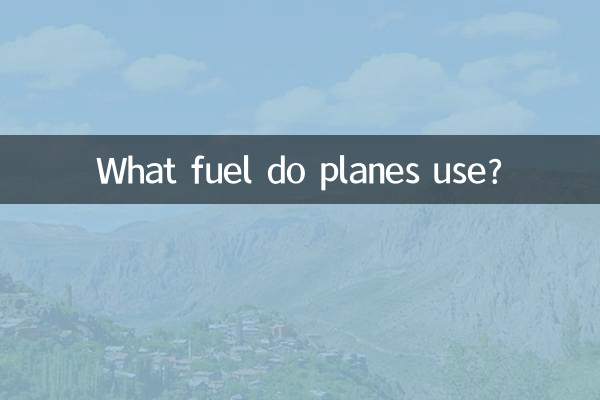What fuel do planes use?
In recent years, with the rapid development of the aviation industry, aircraft fuel selection and environmental protection issues have become hot topics. This article will combine the hot content of the entire network in the past 10 days to discuss the types of fuel used by aircraft, their advantages and disadvantages, and future development trends, and present relevant information in structured data.
1. Main types of aircraft fuel

Currently, aircraft mainly use the following fuels:
| Fuel type | Main ingredients | Applicable models | Features |
|---|---|---|---|
| Aviation kerosene (Jet A/Jet A-1) | hydrocarbons | Commercial airliners, military aircraft | High energy density and good stability |
| Avgas | Leaded gasoline | small piston engine aircraft | High combustion efficiency, but high pollution |
| Sustainable aviation fuel (SAF) | biomass or synthetic fuels | Some new passenger aircraft | Environmentally friendly, but more expensive |
2. Comparison between aviation kerosene and sustainable aviation fuel
Here’s a detailed comparison of aviation kerosene versus sustainable aviation fuel:
| Comparative item | aviation kerosene | Sustainable aviation fuel (SAF) |
|---|---|---|
| Source | oil refining | biomass, waste or synthetic |
| carbon emissions | high | Low (can be reduced by more than 80%) |
| Cost | lower | Higher (currently 2-5 times that of conventional fuels) |
| Technology maturity | very mature | Still needs further promotion |
3. Future development trends of aircraft fuel
According to recent hot discussions, the future development of aircraft fuel may focus on the following aspects:
1.Promotion of Sustainable Aviation Fuel (SAF): Many airlines around the world have begun testing or using SAF, such as KLM and Delta Air Lines. The EU plans to increase the use of SAF to 2% by 2025.
2.Research and development of hydrogen energy aircraft: Airbus and other companies are developing hydrogen energy aircraft, which are expected to be put into use in 2035. The zero-carbon emission characteristics of hydrogen energy make it an important option for future aviation fuel.
3.Exploration of electric aircraft: Small electric aircraft have been successfully tested in some areas, but battery energy density and battery life issues still need to be overcome.
4. Recent hot topics and data
The following are hot topics and data related to aircraft fuel in the past 10 days:
| topic | heat index | Main discussion content |
|---|---|---|
| SAF’s economic controversy | 85 | Discuss whether the high cost of SAF will affect aviation industry recovery |
| Progress of hydrogen energy aircraft | 78 | Airbus releases latest test data of hydrogen-powered aircraft |
| Aviation kerosene price fluctuations | 92 | Russia-Ukraine conflict causes aviation kerosene prices to rise 20% |
5. Summary
The choice of aircraft fuel is not only related to the operating costs of the aviation industry, but also closely related to global carbon emission targets. For now, aviation kerosene remains the dominant option, but alternatives such as sustainable aviation fuels and hydrogen are developing rapidly. The next decade is likely to see major changes in the aviation fuel sector.
Through the above structured data and analysis, we can have a clearer understanding of the current situation and future trends of aircraft fuel. The balance between environmental protection and economy will be the main challenge facing the aviation industry.

check the details

check the details